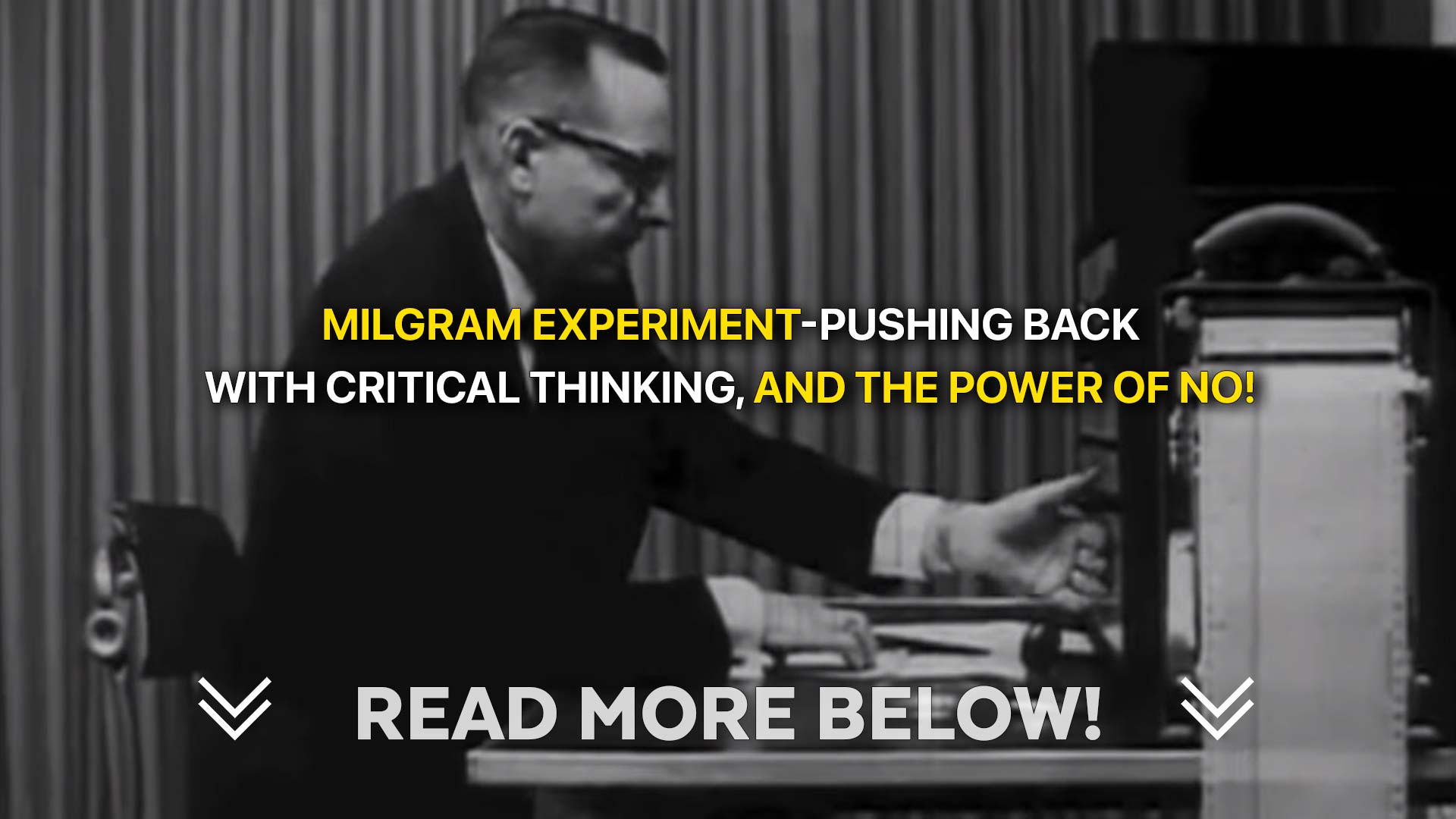Three or four years back, I did a video on our YouTube channel discussing the Milgram Experiment. YouTube took down our channel, and we lost our 250,000 subscribers; that’s for another post. The reason for this post is that the incredible Leigh Dundas briefly spoke on Friday at our Freedom Friday event, during which she stated she had taught her daughter about this experiment. To explain further, I wanted to add some context on why what she decided to teach her daughter is so important.
It’s easy to assume that in the modern age, with all our knowledge and technological advancements, we’d be immune to blindly following authority. Yet, history has repeatedly shown us that the human psyche is much more complex and, at times, malleable than we might like to believe. One of the most chilling examples of this is the Milgram experiment.
The Experiment
Imagine being invited to participate in a study about learning and memory. You’re designated as the “teacher,” and another participant — the “learner” — is strapped to a chair in another room. You’re instructed by a stern-looking scientist to administer an electric shock every time the learner makes a mistake. The shocks increase in intensity, and as they do, you start hearing the learner’s screams of pain.
Most of us would like to believe we’d refuse, that we’d stand up and say, “This isn’t right.” But, in the Milgram experiment, a shocking majority of participants continued to administer what they believed to be increasingly harmful shocks when prodded by the authoritative figure. The kicker? There were no actual shocks, and the learner was an actor. But the participants didn’t know that, in fact, they went as far as to the point of perceived death of the “learner.”
What It Revealed
On the surface, it’s a brutal revelation about humanity. The experiment uncovered a dark side of our nature: an unsettling willingness to obey authority figures even when they contradict our moral judgments. It reminds us of how structures of power can influence individual actions and how easily some individuals might succumb to authoritative pressure, committing acts they’d normally find reprehensible.
Why Critical Thinking Matters Now More Than Ever
The Milgram experiment isn’t just a glimpse into a past research study; it’s a stark reminder for the present day. In an era saturated with information, where figures of authority exist in many forms — from media personalities to politicians — the need for critical thinking has never been more urgent.
If we don’t question, if we don’t critically analyze the information presented to us, we risk becoming puppets in a play we didn’t choose. Being a passive receiver makes us vulnerable to manipulation, and as history has shown, that can lead to heinous acts committed in the name of obedience.
Pushing Back: A Duty, Not Just a Right
It’s easy to fall into the trap of thinking that questioning authority is rebellious or unnecessary. But it’s more than a right; it’s a duty. It’s our responsibility as members of society to ensure that we’re not just passive absorbers of information but active participants in our own decision-making processes.
So, next time you’re faced with a directive or piece of information from an authoritative source, take a moment. Reflect. Analyze. Question its validity and weigh it against your own moral compass. Remember, true authority doesn’t fear questions. Stay curious, and always push back when things don’t feel right.
In Conclusion
The Milgram experiment serves as a timeless reminder of the power dynamics at play in our society. But it also underscores the importance of individual agency, of standing up when things go awry. In the end, our greatest defense against blind obedience is our own mind, critical thinking, and the courage to say “no” when necessary. Don’t just be another participant in the experiment of life; be the one who flips the script.
Remember this: with our education system, open borders, war, masks, jabs, lockdowns, and our BS election system, they want us to believe it’s legitimate.
Beadles
P.S.
Starting this week, I will be doing a series of posts on the Federalist Papers and why they are so important. We need to re-learn what schools fail to teach our kids these days.




